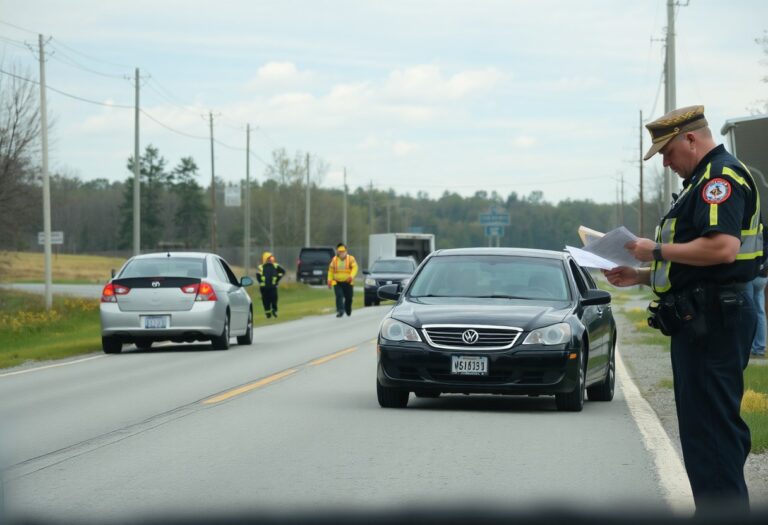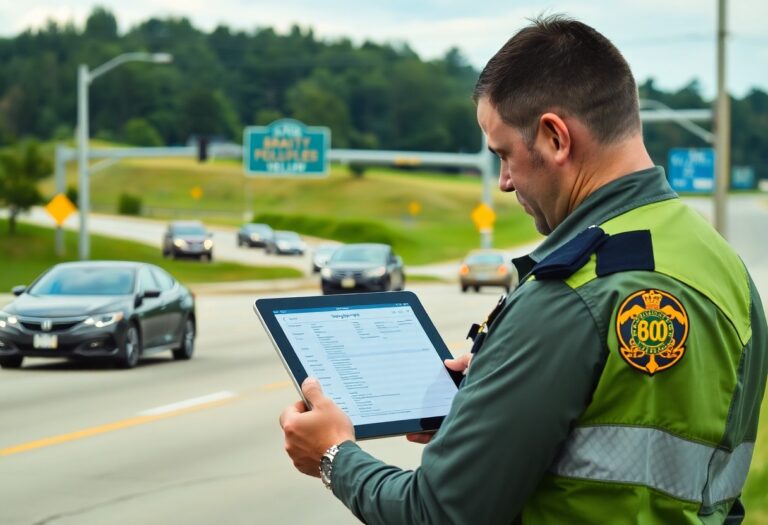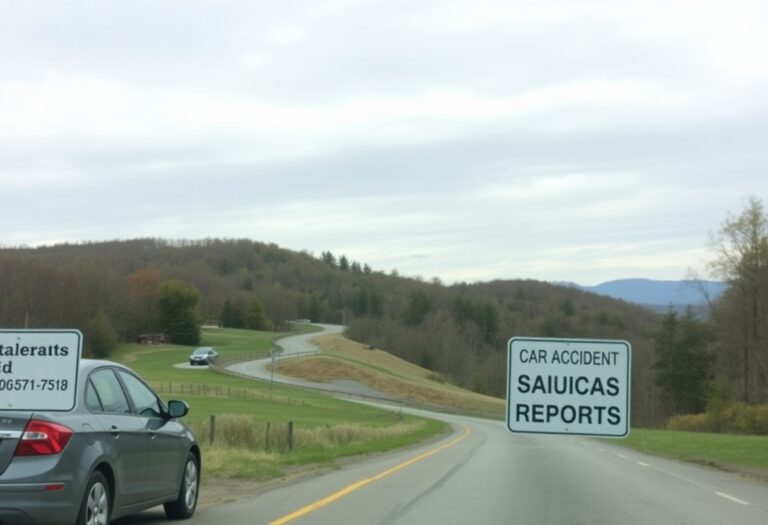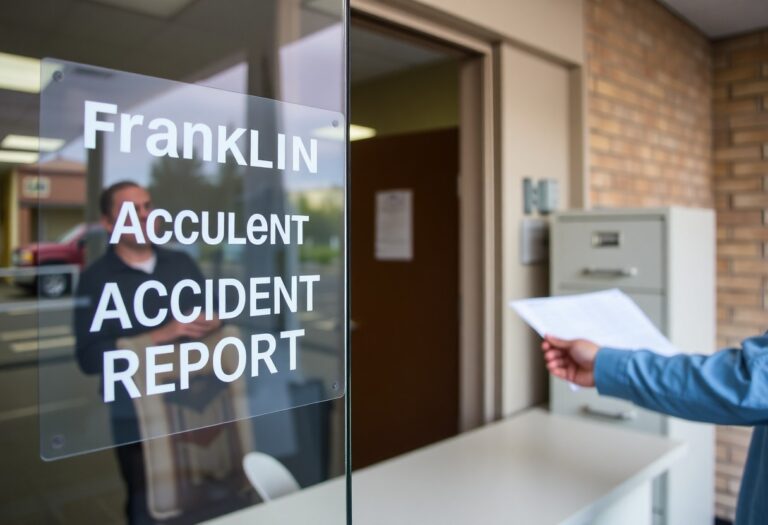Accident scenarios can be overwhelming and stressful, but understanding the process to obtain car accident reports in Danville, Virginia, can ease your mind. In this guide, you will learn how to navigate the report retrieval process effectively, ensuring you get the documentation you need for insurance claims or legal matters. From gathering necessary information to knowing where to submit your requests, this assistance will provide you with the step-by-step instructions necessary to handle the aftermath of your car accident efficiently.
Navigating the Scene of an Accident
After an accident occurs, assessing the situation becomes your foremost task. Safely maneuvering your vehicle to the side of the road minimizes danger for you and other motorists. Stay calm, and check on any passengers for injuries before stepping out to evaluate the scene. Alerting emergency services should be your immediate next step if anyone requires medical attention. Stability is key; ensure you prioritize safety while you gather information needed for a comprehensive accident report.
Prioritizing Safety and Emergency Protocols
Ensuring everyone’s safety is your primary concern. If the vehicles are causing a hazard, turn on your hazard lights and consider placing reflective triangles or cones to warn oncoming traffic. Only exit your vehicle if it’s safe to do so, and assist any injured parties if you’re able. Calling 911 for emergencies will engage first responders who can secure the scene and provide necessary assistance.
Documenting Key Information At the Scene
Collecting detailed information at the scene simplifies the claims process and supports any legal matters that may arise. Take note of witnesses’ names and contact information, and gather details from all drivers involved in the incident. This includes license plate numbers, insurance information, and driver’s license numbers. Photographs of the vehicles, road conditions, and any visible injuries provide valuable evidence that clearly illustrates the circumstances of the accident.
Thorough documentation encompasses more than just basic details; you want to capture as much relevant information as possible. Notes on weather conditions, time of day, and road signage can influence liability. Use your smartphone to take pictures from multiple angles, ensuring all aspects of the crash site are covered. Creating a clear, informative account protects you during potential disputes and reinforces your position should you need to file claims with insurance companies.
Legal Essentials: Understanding Your Rights
After a car accident, familiarity with your rights can significantly impact the outcome of any claims or legal actions you may pursue. You possess the right to seek compensation for injuries, property damages, and emotional distress. Understanding these rights helps you navigate insurance negotiations and ensures you receive the treatment and restitution you deserve. Staying informed enables you to recognize the limitations of liability and hold responsible parties accountable for their actions on the road.
Knowing When to Involve Law Enforcement
Calling law enforcement is imperative if there are injuries, significant property damage, or if any party is suspected of being under the influence. A police report not only documents the incident but also serves as an objective account of events. This record can be invaluable when filing insurance claims or if disputes arise later on. Timely police involvement can bring clarity and order to chaotic situations, ensuring that all perspectives are captured and impartiality is maintained.
The Importance of Witness Testimony
Witness testimony can significantly bolster your case by providing an unbiased account of the accident. Eyewitnesses can corroborate your account, detailing the circumstances surrounding the incident and helping to establish fault. Additionally, statements gathered at the scene may become key evidence when discussing compensation or pursuing legal action against the responsible party.
Having multiple witnesses to the event can add weight to your claims, particularly if their testimonies align. Witnesses can capture specific details you might have overlooked, such as the speed of vehicles or external factors contributing to the accident. Their observations can detail not just the impact but also the behavior of each driver leading up to the incident, further clarifying any disputes concerning liability. Make sure to gather contact information from witnesses at the scene, as their statements can prove invaluable in supporting your case later on.
Crafting the Perfect Accident Report
Accurate documentation is vital after a car accident. A well-structured accident report can help you present a clear narrative of the incident, which is imperative for any claims process. Start by detailing the *date, time,* and *location* of the accident, followed by a description of the events leading up to it. Include information on any other vehicles involved and a summary of damages. Use *objective language* to ensure your report reflects the facts rather than emotions, establishing a stronger case in your favor.
Gathering Evidence and Supporting Documentation
Collecting *evidence* is a key step in substantiating your accident report. Begin with photographs of the scene, including all vehicles involved, visible damages, and relevant traffic signs. Additionally, gather witness statements and their contact information, as eyewitness accounts can bolster your claims. Don’t forget to obtain a copy of the police report, which provides an official perspective on the incident. Documenting your injuries with medical records and photographs creates an organized account of the accident’s effects on your life.
Common Mistakes to Avoid in Reporting
Several errors can undermine the effectiveness of your accident report. Failing to include all relevant details, writing in an emotional tone, or delaying the report can complicate your case. Ensure that you refrain from admitting fault, as this can be used against you later. It’s also imperative to report the incident promptly to the authorities and your insurance company to keep your claims process on track.
Avoiding common pitfalls during the reporting process can significantly enhance your case’s integrity. Inaccurately describing the events or omitting important details can raise questions about your credibility. For instance, neglecting to mention the weather conditions or traffic at the time of the accident could lead to misinterpretation. Equally, discussing your feelings about the accident rather than presenting factual information can detract from the professionalism of your report. Strive for detail and clarity to make your account compelling and solidify your standing in any subsequent claims or legal actions.
Engaging with Insurance Companies: A Strategic Approach
Effective engagement with insurance companies can significantly influence your claims experience. Knowledge of your policy details, meticulous documentation of your accident, and a clear understanding of your rights empower you to navigate negotiations confidently. Establishing a professional tone while asserting your position enables you to advocate for a fair settlement without compromising your interests. Don’t shy away from asking questions or seeking clarifications regarding your coverage and the claims process, as this can demystify your interactions and enhance your overall strategy.
Preparing for the Claims Process
Before plunging into the insurance claims process, gather all relevant documents, including accident reports, medical bills, and vehicle repair estimates. This organized documentation serves as your backbone during discussions with the insurance adjuster. Prepare a detailed account of the accident, including how it occurred and the resultant damages, ensuring you present a clear and compelling case during negotiations.
Strategies for Negotiating Settlements
Negotiating settlements can often involve back-and-forth communication with insurance adjusters. Begin by clearly outlining your damages—both economic and non-economic—while remaining realistic about the settlement amount. Utilizing comparative examples of similar claims can bolster your argument. Communicate confidently and assertively, and be prepared to counter initial offers that may undervalue your situation. Always keep in mind that you have the right to pursue fair compensation without accepting the first offer presented.
To enhance your negotiation success, consider employing strategic tactics such as anchoring, where you set your initial settlement request higher than your minimum acceptable amount. This establishes a bargaining range favorable to you. Stay calm, composed, and focused on your well-documented evidence, which can sway the insurance adjuster’s position. Engaging with a legal professional—as they can provide insights into local regulations and historical claims data—might also give your case an upper hand. The objective is to assertively advocate for what you truly deserve, driven by objective data and a clear understanding of your rights and responsibilities.
Leveraging Local Resources for Additional Support
In Danville, you can tap into various local resources to navigate the aftermath of a car accident. Local organizations often provide necessary support, including counseling, financial assistance, and legal aid. Connecting with these groups helps you ensure that you receive the guidance necessary to address physical, emotional, and financial challenges post-accident.
Community Programs and Resources Available in Danville
Danville hosts several community programs designed to assist residents recovering from accidents. Organizations like the Danville-Pittsylvania County Chamber of Commerce offer referrals to local health services and support groups. Additionally, the United Way of Danville provides necessary information on emergency financial help and can connect you with resources for transportation and healthcare needs.
Finding Legal Assistance in Virginia
Obtaining legal expertise following an accident enhances your chances of receiving just compensation. In Virginia, numerous attorneys specialize in personal injury law, adept in navigating the complexities of car accident claims. A local attorney can help you evaluate your case, negotiate with insurance companies, and represent you in court if necessary.
Exploring legal assistance in Virginia involves researching experienced personal injury lawyers through local bar associations or online directories. Look for attorneys who offer free consultations, allowing you to gauge their expertise without financial commitment. Moreover, read reviews and ask for referrals from friends or family who have undergone similar experiences. Ensuring your attorney has a proven track record in handling car accident cases can significantly impact your outcome and recovery process.
Summing up
Ultimately, understanding the process of obtaining a car accident report in Danville, Virginia empowers you to navigate your situation with ease. By knowing where to apply, what documents to prepare, and what steps to follow, you can efficiently obtain the information you need. Whether for insurance purposes or legal matters, this knowledge ensures you stay informed and prepared in the aftermath of an accident, helping you to focus on your recovery and moving forward.













